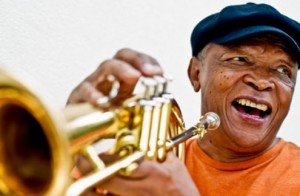Music genres are plentiful on this continent. Here’s a short list of just a few of them:
Afrobeat
Fela Kuti created Afrobeat by fusing traditional Nigerian music, jazz and highlife. Today, it is often mixed with hip hop or makossa and well known even outside Africa.
Apala
Apala is a percussion-based style of the Muslim Yoruba people in Nigeria, West Africa.
Assiko
Assiko is a rhythmic dance from Cameroon.
Bikutsi
This dance music developped from the traditional music of the Beti in Cameroon. The sexy dance moves remind of the popular Mapouka from the Ivory Coast.
Benga music
Popular music in Kenya. The electric bass guitar imitates the melodies of the traditional Kenyan eight-string lyre called Nyatiti.
Bongo Flava (Tanzania)
Cabo-Love (Cape Verde)
Chimurenga music
Popular style from Zimbabwe. The melodies played by modern instruments are based on the traditional Mbira music of the Shona people.
Coladeira (Cape Verde)
Coupé-Decalé
Pop music from the Ivory Coast/France with danceable percussion and deep bass. This style is said to help Ivorians through tough times and difficult political situations.
Desert Blues
The people living in the Sahara desert have been making blues music long before it got famous in the West. This sounds absolutely brilliant!
Fuji
Popular music genre from Nigeria, based on traditional Muslim Yoruba music.
Follow the link to read Numbers of Music Genres in Africa



